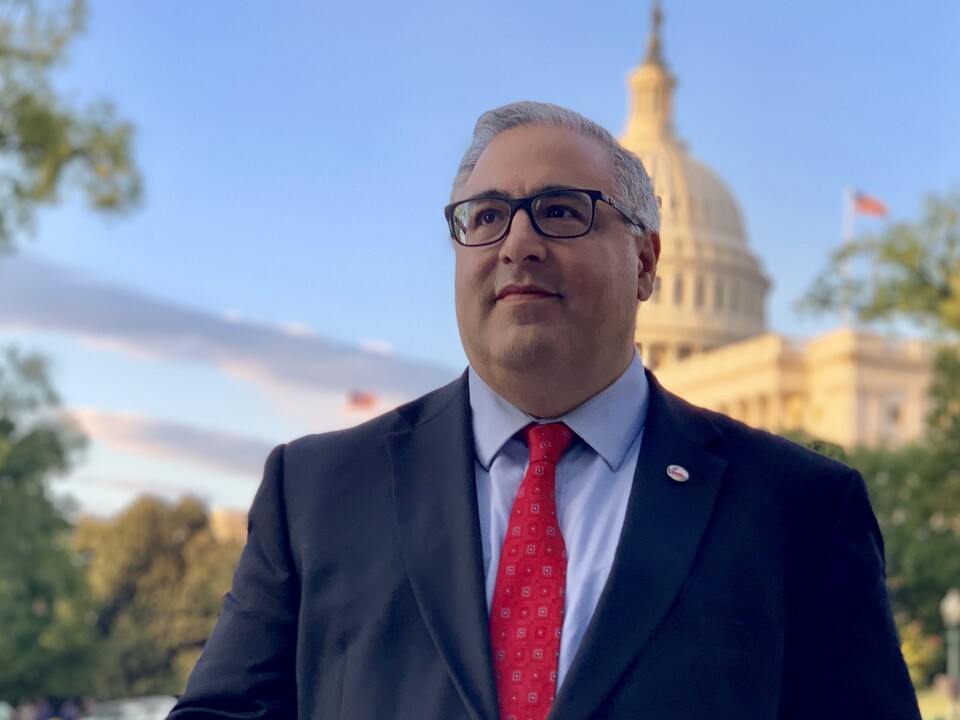Armenian Public Holds Complex Range of Views on US Relations and Regional Security
10-minute read
As Armenia navigates an increasingly complex geopolitical landscape, understanding public sentiment on strategic partnerships has never been more crucial. This is why Armagora.am, an initiative of The FUTURE ARMENIAN Development Foundation, continues to publish an ambitious series of comprehensive public attitude assessments aimed at mapping Armenians’ views on the foundational challenges and opportunities facing the nation. Our latest poll, focusing on Armenia’s foreign relations, particularly that of the US following the election of President Donald Trump, is part of this wider initiative to foster informed dialogue on issues central to Armenia’s development. A comprehensive poll examining Armenian attitudes toward US relations and regional dynamics provides vital insights into how the public views their country’s international position and future direction.
The poll, conducted in the first two weeks of January 2025, reveals a fascinating picture of how Armenians view their relationship with the United States and their place in regional politics. Perhaps the most general conclusion that this new set of polls demonstrates is that Armenians see US elections as a “meet the new boss, same as the old boss” type of event. Indeed, a plurality of poll respondents don’t believe that a Trump administration would have either a more positive or negative effect on Armenia, just as virtually half of them don’t believe that a Trump administration’s policy towards Armenia would differ in any meaningful way from that of the previous Biden Administration.
Such an unphased view of US government foreign policy is noteworthy since it suggests that Armenians understand American strategic interests, at least in a general sense, to be relatively immutable between presidents and political parties in power at any given time. While experts point out that global powers such as the US often do have overarching foreign policy interests that tend to be viewed as bipartisan issues (an obvious example being US-PRC relations, for instance), US policy towards Armenia has seen pretty notable shifts over the last several administrations, even if the direct impact of which hasn’t necessarily been felt by many Armenians. In fact, the last Trump administration seemed to have remained quite ambiguous towards Yerevan, with some blaming Trump’s lack of sympathy for emerging democracies, and “America-First” tendencies for creating the atmosphere of regional dereliction, allowing bad actors including Turkey and Azerbaijan (both of which host Trump properties) to act with impunity. This position was somewhat overturned under the Biden Administration which heralded a “return” of the United States as a torchbearer for human rights and democracy across the world. While this renewed interest in carving up the world between democracies and authoritarian regimes, often concretized in the form of visits from Nancy Pelosi or Samantha Power, wasn’t enough to prevent Azerbaijan’s complete ethnic cleansing of Artsakh, it did end in the signing of a strategic partnership agreement between Washington and Yerevan, which holds the US to certain obligations towards Armenia. It remains to be seen whether such a partnership would survive a Trump presidency.
The survey’s findings on Trump-era relations reveal particularly intriguing patterns. Nearly half (49.70%) of respondents expect decreased US regional engagement under Trump, while only 22.75% anticipate more active involvement. This skepticism extends to expectations about Trump’s presidency, with 32.34% expecting no impact on Armenia, while negative expectations (27.54%) outweigh positive ones (15.57%). This is consistent with expectations that Trump will make good on promises to reduce America’s involvement on the world stage and focus on the United States’ direct interests and reflects the incoming President’s immediate engagement in a series of trade wars with his country’s closest allies, and open coveting of territories like the Panama Canal and the entirety of Greenland.
In line with previous polls conducted under the umbrella of this project, Armenians show a distinct interest in some sort of security guarantee from the United States, which they hope could be partially reflected in this strategic partnership agreement. While they strongly favor military cooperation, with 37.94% supporting it as a top priority for US relations, their views reflect a deeper understanding of Armenia’s unique position in a complex region. State institution consolidation emerged as the second priority at 24.47%, highlighting a pragmatic approach to strengthening domestic capabilities alongside international partnerships.
When it comes to dealing with regional powers, Armenians show notable concern about Russian influence. The possibility of Russia achieving its objectives in Ukraine prompts worry, with 37.72% expecting negative consequences for Armenia. Yet equally telling is the 36.53% who believe the impact would depend on other factors, suggesting a sophisticated understanding of regional power dynamics rather than simplistic assessments. This could be interpreted as an understanding among Armenians that Russia’s long distraction in Ukraine, along with the relative weakening of its hard power capabilities, has sparked the necessity and created a small window of opportunity for Armenia to diversify its economic and physical security, with the fear materializing that if this window snaps shut before this reshuffling is complete, it might see a vengeful Russia attempt to reassert itself in the region to the detriment of Armenia’s democratizing institutions.
The anxiety present over a return of President Trump to the White House is best voiced by Suren Sargsyan, director of the Armenian Center for American Studies, whose “Ask Me Anything” related to the same questions provided on this poll was recorded on January 15. “The issue with the question of whether or not Trump would launch a war with Iran is complicated by the President’s conflicting messages,” Sargsyan said in the live video. “To domestic audiences, Trump presents himself as an anti-war president, who wants to be known in history as the President who never started any war,” the analyst says. “The second message is that the United States will protect its and its allies’ interests at all costs, and that obviously includes Israel.” Still, the poll shows that a minority of Armenians think that the US would ever go to war with Iran, which, for Armenia, would obviously be a catastrophic geopolitical calamity outside of its own control.
Armenian lobbying organizations’ effectiveness in the US presents another revealing dimension, with 41.92% viewing their impact as limited. This realistic assessment suggests a mature understanding of the complexities of international relations, moving beyond traditional diaspora influence narratives to recognize the multiple factors shaping foreign policy.
What emerges is a vision of Armenia’s international relations that’s both ambitious and practical. Armenians want to strengthen military cooperation with the US while building robust state institutions. They’re aware of regional threats but maintain a nuanced view of how these might affect their country. This balanced approach suggests a sophisticated public understanding of Armenia’s geopolitical challenges.
The data points to three key recommendations for Armenia’s decision-makers: First, prioritize military cooperation with the US while strengthening domestic institutions. Second, maintain a balanced approach to regional powers, recognizing both opportunities and risks. Finally, develop more effective channels for international engagement beyond traditional diaspora networks.
The willingness to pursue practical partnerships while maintaining clear priorities indicates support for what might be called “strategic pragmatism” in foreign policy. This nuanced position – supporting both security cooperation and institutional development – suggests Armenians expect their government to protect core national interests while remaining open to practical solutions. In essence, Armenians appear to understand what foreign policy experts have long argued: that true sovereignty in the 21st century requires not just political independence, but robust international partnerships and strong domestic institutions.
The poll paints a picture of a population that wants it all: security guarantees, institutional strength, and strategic flexibility. And given Armenia’s position – a small nation in a complicated neighborhood – that might be exactly what it needs.
1. Regional Power Dynamics Assessment (Radar Chart)
- Visualizes the multi-dimensional nature of Armenia’s regional position.
- Shows the relationship between different aspects of regional power concerns.
- Highlights the high level of concern about US disengagement and Russian influence.
2. Pragmatism vs. Uncertainty Matrix
- Compares levels of pragmatic attitudes with uncertainty across different domains.
- Shows how pragmatism and uncertainty vary by issue area.
- Helps identify where public opinion is most and least settled.
3. Confidence in International Engagement
- Measures confidence levels in different aspects of international relations.
- Shows relative strength of belief in different engagement strategies.
- Highlights areas where public opinion is most positive/negative.
These visualizations help emphasize several key findings:
- The strong preference for security-focused engagement.
- The balanced approach between pragmatism and caution.
- The complex web of regional power dynamics.
- The varying levels of confidence in different international engagement strategies.







